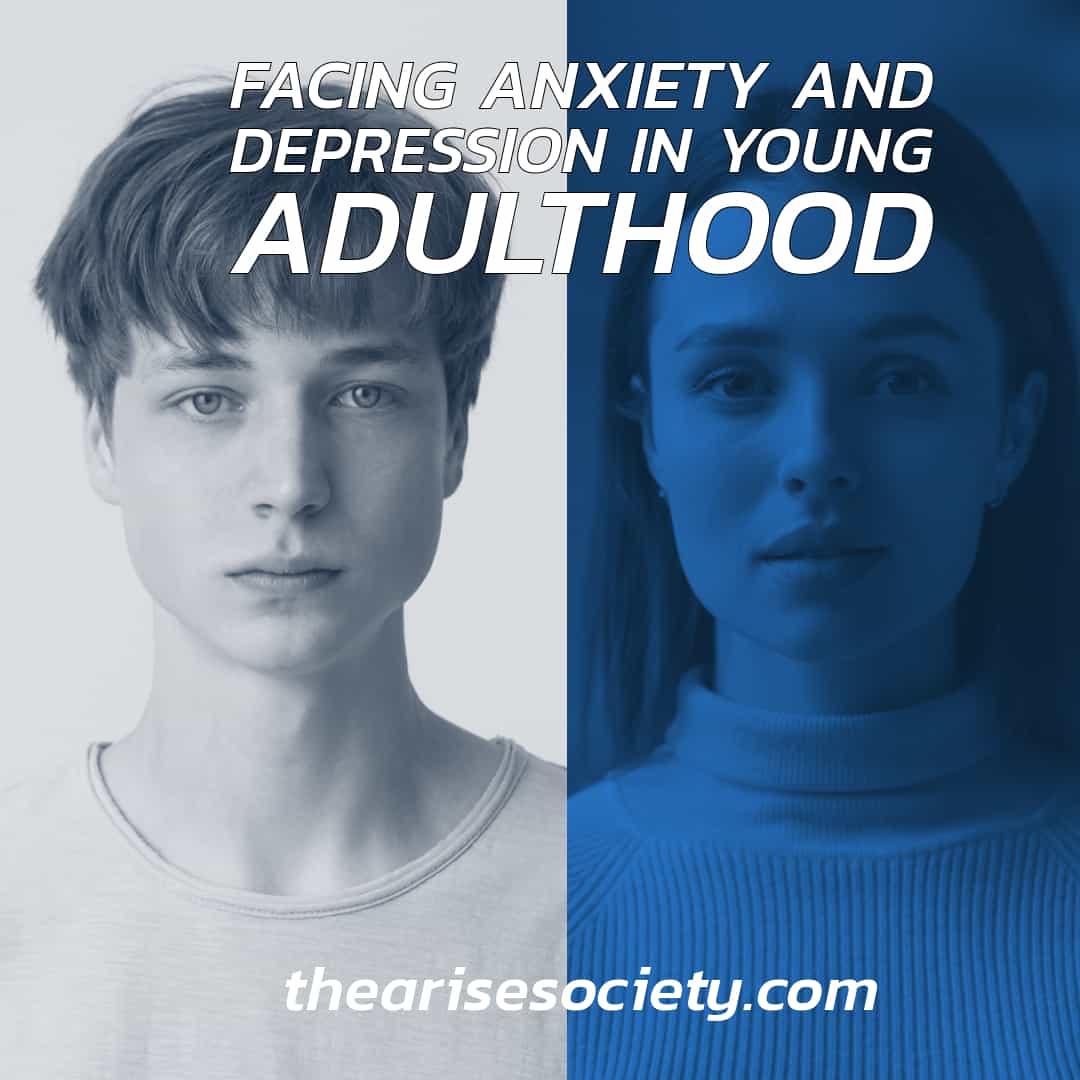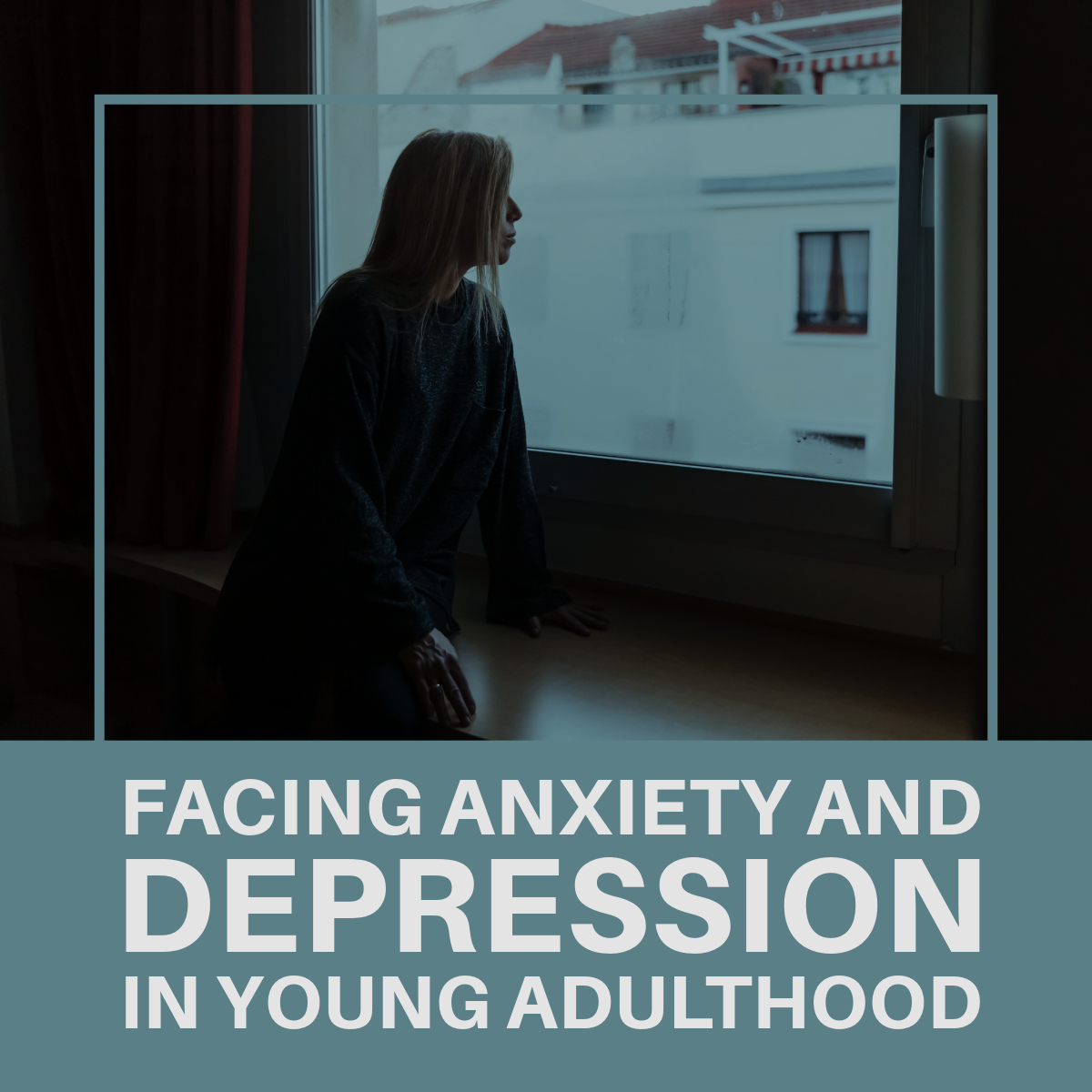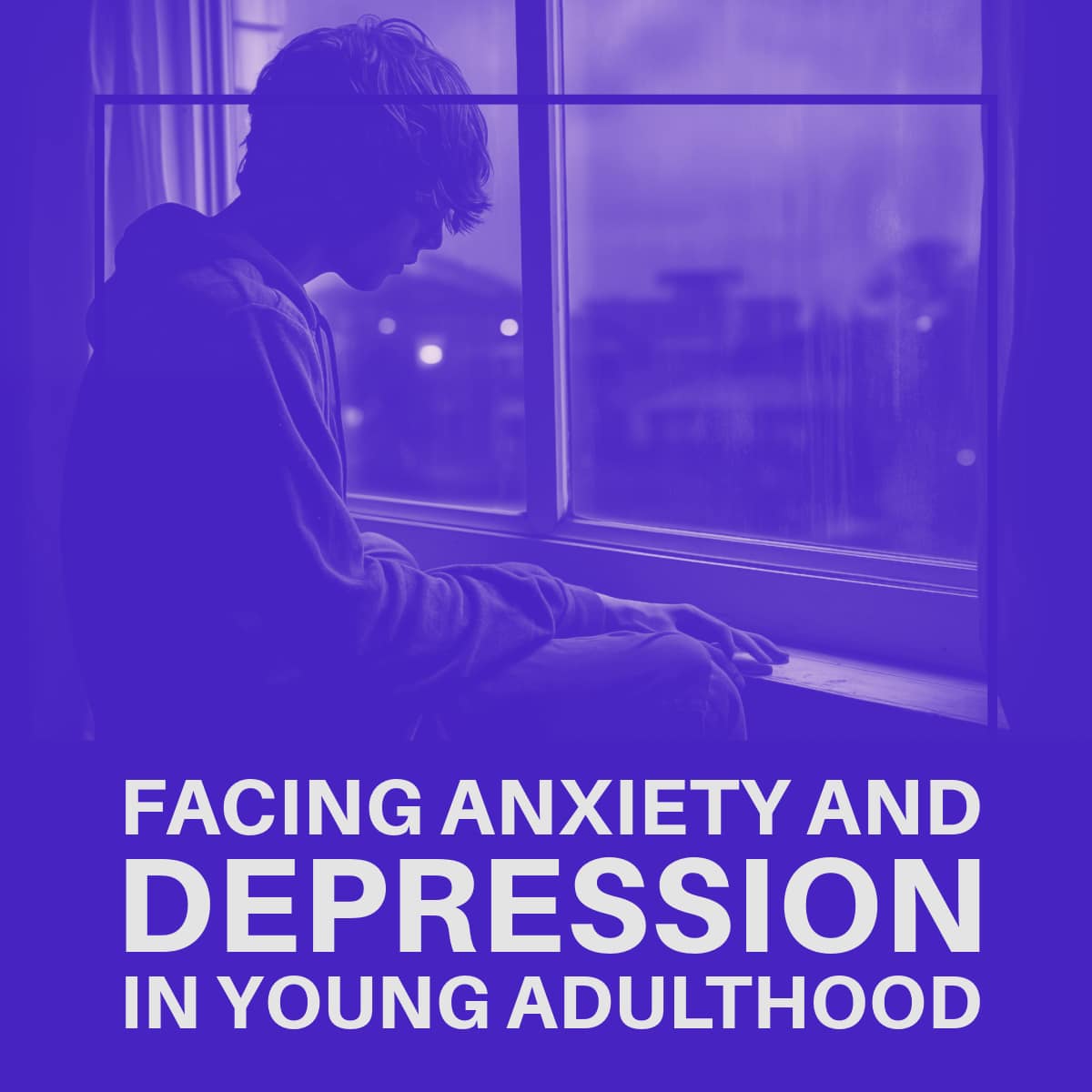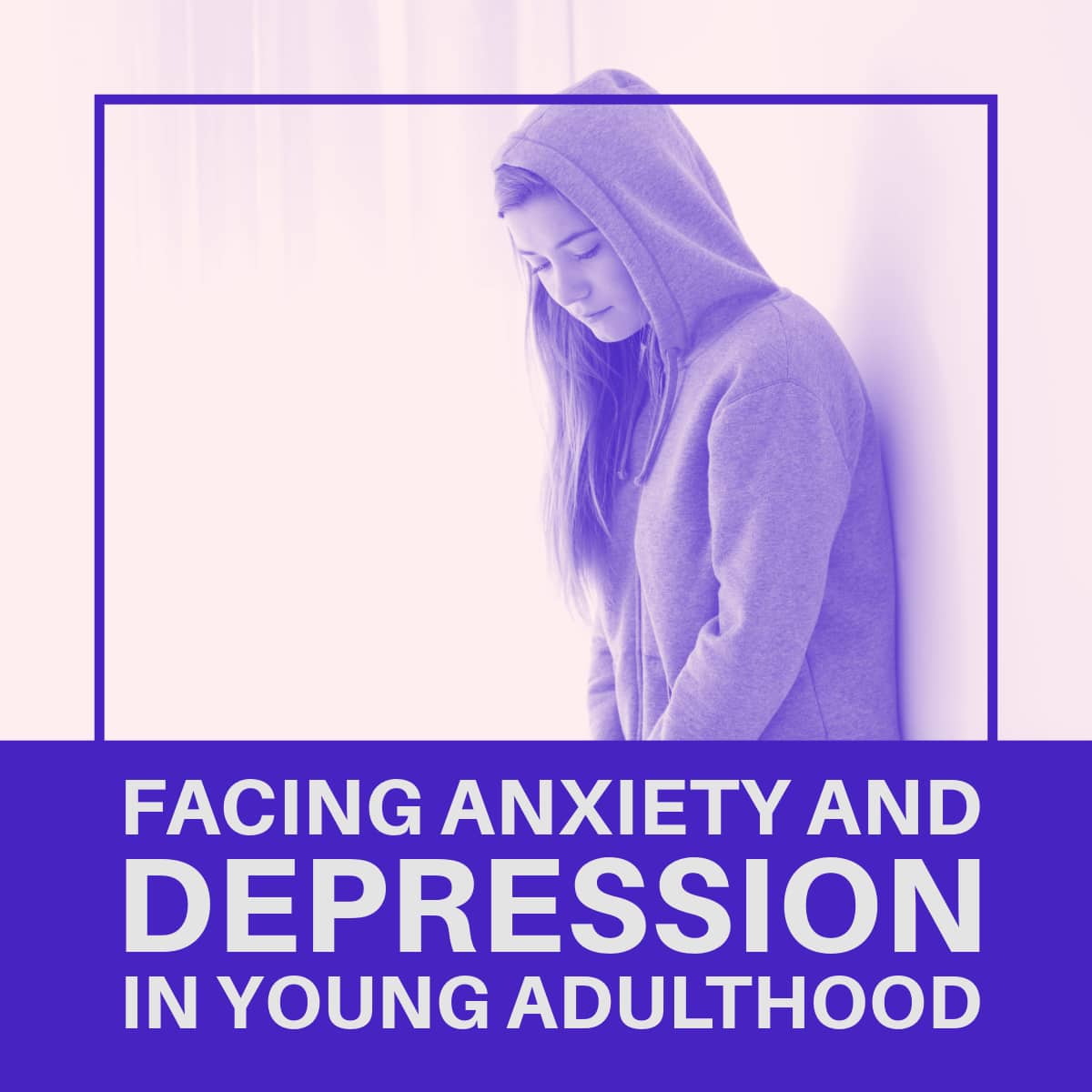Understanding Anxiety in Young Adults
Anxiety is far more than occasional worries—it’s a pervasive feeling of apprehension that doesn’t fade away with time. Recognized as a common mental health condition, anxiety disorders can range from generalized anxiety disorder to more specific phobias, each marked by a constellation of symptoms. Young adults often face a relentless barrage of symptoms like a pounding heart, shallow breathing, muscle tension, and an inability to shake off persistent fears and concerns. These symptoms can interfere dramatically with day-to-day activities, whether in a classroom, workplace, or home, trying to handle life’s demands.
The Unique Pressures on College Students and Working Young Adults
For college students, anxiety can arise from the pressure to perform academically, fit into social circles, or worry about future employment. Similarly, young adults in the workforce or those who chose a path other than higher education may encounter anxiety-inducing situations related to job stability, career advancement, or even just the mechanics of adulting. Such anxiety can cripple one’s ability to make decisions and take on responsibilities. It can lead to avoidance behaviors that spiral into more anxiety, creating a vicious cycle that can be difficult to break without support.
Related Article: Free ebook – college students guide to social anxiety

What is Depression?
Depression: More Than Just Sadness
Depression envelops an individual in an unyielding sense of despondency that’s more intense and enduring than the fleeting sadness everyone experiences. This mental health disorder inflicts a persistent cloud of despair, stripping away the joy from life’s pleasures. It manifests through a myriad of symptoms, from a pervasive low mood and significant weight changes to overpowering fatigue or disturbances in sleep patterns. Young adults grappling with depression might notice a profound drop in energy, a loss of interest in once-loved activities, and an onset of unexplainable aches and pains.
Recognizing Depression in Diverse Young Adult Lives
While college students with depression might show signs such as academic disengagement or isolation from their peers, working young adults could exhibit decreased productivity or a lack of motivation at work. Those not pursuing college might struggle with feelings of aimlessness or underachievement. It’s essential to be vigilant for these red flags because whether in the hustle of campus life, the competitive nature of early careers, or the unconventional trails of personal endeavors, depression doesn’t discriminate. Acknowledging these symptoms and seeking help early can be key to managing depression before it escalates into a more severe health crisis.
Related Article: Depression in Young Adults
The Impact on Everyday Life
Anxiety and Depression in the Day-to-Day
Anxiety and depression can deeply infiltrate the everyday lives of young adults, casting long shadows over what should be their most vibrant years. The symptoms of these mental health disorders are not restricted to specific settings or life choices, affecting those in college, starting careers, or navigating other paths entirely.

Academic and Professional Performance
In academia, anxiety might cause a student to freeze during an important test or presentation, despite being well-prepared. Depression could make another student miss numerous classes due to an inability to get out of bed, resulting from a lack of energy and motivation. In the workplace, these disorders can manifest as difficulty meeting deadlines, a reluctance to participate in meetings or declining job performance. The stakes are high; academic setbacks and professional missteps at this pivotal stage can have reverberating effects on future opportunities and self-esteem.
Social Interactions and Relationships
Beyond academia and the workforce, anxiety and depression also take a toll on social interactions and personal relationships. Anxiety may prevent someone from attending social gatherings or reaching out to make new friends, leading to loneliness and isolation. Depression can cause a once-social individual to withdraw from friends and family, neglecting the relationships that could offer support and solace.
Related Article: Is social media a cause of student anxiety?
Personal Growth and Self-Care
For young adults, personal growth and self-care are crucial. However, anxiety and depression can make the maintenance of healthy habits feel insurmountable. Exercise, balanced nutrition, and good sleep—staples of a healthy lifestyle—are often the first to be abandoned. In their place, unhealthy coping mechanisms can emerge, such as substance abuse or other risky behaviors, further compounding the problem.
Seeking and Getting Help
Breaking the Silence
It’s imperative to break the silence around these mental health issues. Addressing anxiety and depression is the first step towards recovery. Young adults and their friends and families must recognize the importance of seeking and getting the appropriate help.
Support Networks
Creating a strong support network is pivotal. This can include friends and family, mental health professionals, and even peers experiencing similar challenges. The Arise Society offers a haven where young adults are understood, supported, and encouraged to overcome these challenges through personalized care, academic support, and therapeutic intervention.
Professional Resources
There’s an array of professional resources available to those struggling. Many pathways can lead to betterment, from individual therapy to medication management and holistic approaches. The Arise Society not only provides these options but also tailors them to the unique needs of each young adult, aiming at long-term success and well-being.
In the next section, we’ll delve deeper into coping mechanisms and strategies that can aid in managing the impact of anxiety and depression on the diverse lives of young adults.
Available Resources at The Arise Society
Tailored Support for Each Journey
Dr. Vaughn Heath founded the Arise Society in Orem, Utah. At The Arise Society, we believe in the power of personalized care. We offer a suite of resources designed to provide comprehensive support for our students facing anxiety and depression, no matter their life path—whether they’re navigating college, embarking on their careers, or exploring other educational ventures.

Academic and Therapeutic Support
Our academic support extends beyond traditional tutoring, personalized study plans, and learning strategies to manage and excel despite mental health hurdles. We pair this with therapeutic support, ensuring our students perform academically and thrive emotionally.
Related Article: College anxiety and academic distress
Social and Individual Guidance
We understand that social interactions play a crucial role in mental health. That’s why we provide mentoring and events to help young adults forge meaningful connections and build a strong sense of community.
Skill Development for Independence
From teaching time management and organizational skills to providing mentorship on managing finances and self-care, The Arise Society equips young adults with the skills they need to transition into independence successfully.

How to Access Help at The Arise Society
Taking the First Step
Recognizing the need for help is a brave and crucial step towards wellness. We want to make the next steps seamless for you or your loved one.
Reaching Out Made Simple
Contacting The Arise Society is the gateway to our wide array of services. Whether by phone, email, or through our website, reaching out will connect you directly with professionals who can guide you toward the appropriate programs and services.
Becoming Part of the Community
Upon joining The Arise Society, each young adult is welcomed into a vibrant, understanding community where everyone is valued and empowered to overcome their struggles with mental health. Learn more about our immersive program and how our community can help you or your loved one.
Conclusion – Facing Anxiety and Depression
Anxiety and depression are significant challenges that affect many young adults around the world. But at The Arise Society, these challenges can be met with compassion, understanding, and the right support. Our relationship-based approach, personalized care, and unwavering support create a unique environment that fosters resilience, empowers individual growth, and supports mental wellness.
Whether through our academic programs, therapeutic interventions, or the nurturing social environment, we stand committed to aiding every young adult in our care to navigate through their tough times and move towards a brighter, more independent future.
We invite those who are struggling or know someone who is, to reach out. Together, let’s take the steps towards healing and watch as our young adults transform their lives, one day at a time. At The Arise Society, hope and help are always within reach.
FAQ: Facing Anxiety and Depression in Young Adulthood
How do I know if what I'm feeling is anxiety or depression and not just typical stress or sadness?
Typical stress and sadness are often situational and temporary, whereas anxiety and depression can be more persistent and can disrupt daily functioning. If you find your worries or low mood are consistent, overwhelming, and affecting your ability to perform everyday tasks, it might be time to seek professional guidance.
At what point should a young adult seek help for anxiety or depression?
Help should be sought any time anxiety or depression begins to interfere with the quality of life—when it affects school, work, or relationships or when the individual feels they can’t manage their symptoms on their own. Early intervention can lead to better outcomes, so reaching out sooner rather than later is recommended.
What kind of treatments are effective for young adults with anxiety and depression?
While treatment varies depending on the individual, it commonly includes therapy (such as cognitive-behavioral therapy), medications, lifestyle changes focusing on diet and exercise, and social support. At The Arise Society, we develop individualized plans considering all these factors.
Can anxiety and depression be cured, or will a young adult need to manage these conditions for a lifetime?
Many people successfully manage and greatly reduce their symptoms of anxiety and depression with treatment and over time. Each journey is different; some may find that their symptoms can be resolved, while others may need ongoing strategies to manage their mental health.
5. What is the first step a young adult or their loved ones should take if they suspect anxiety or depression?
The first step is reaching out for help—this could mean talking to a trusted healthcare provider, a mental health professional, or a support organization like The Arise Society. You are not alone, and many avenues of help are available to navigate these challenges.

